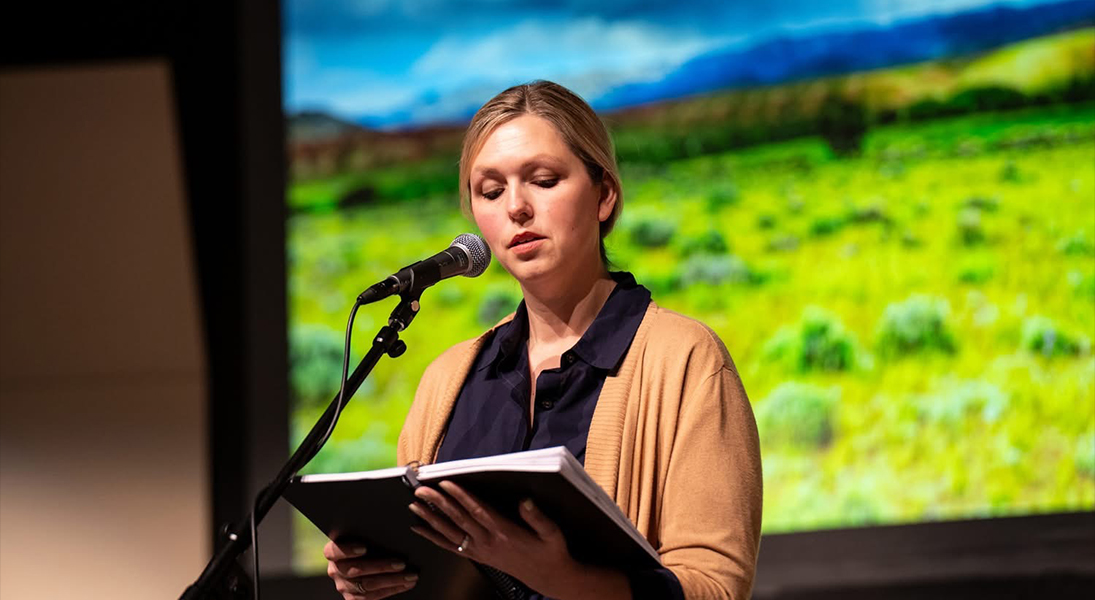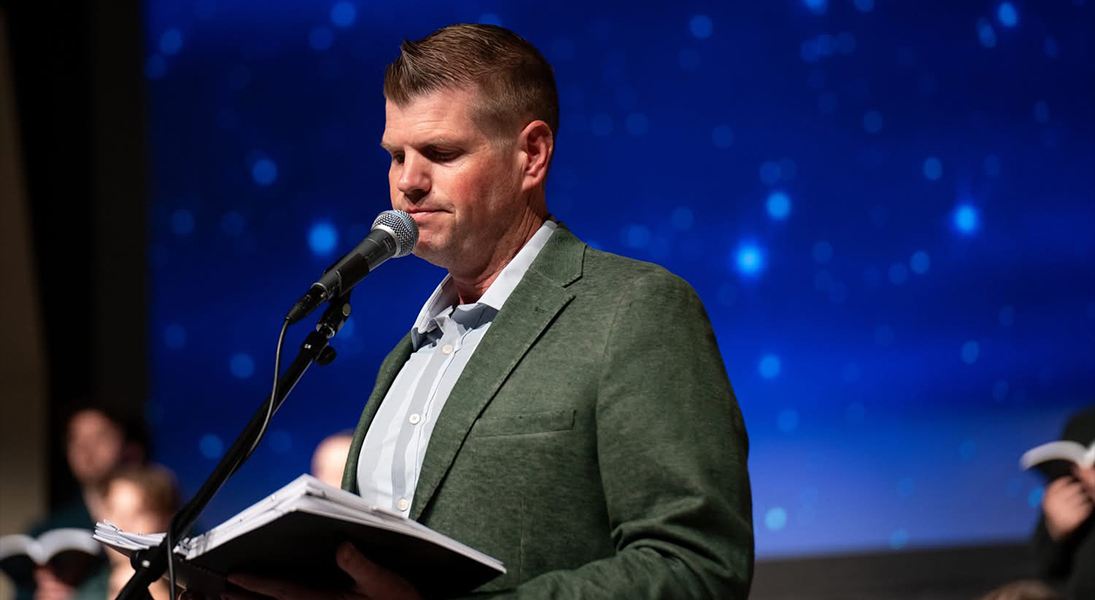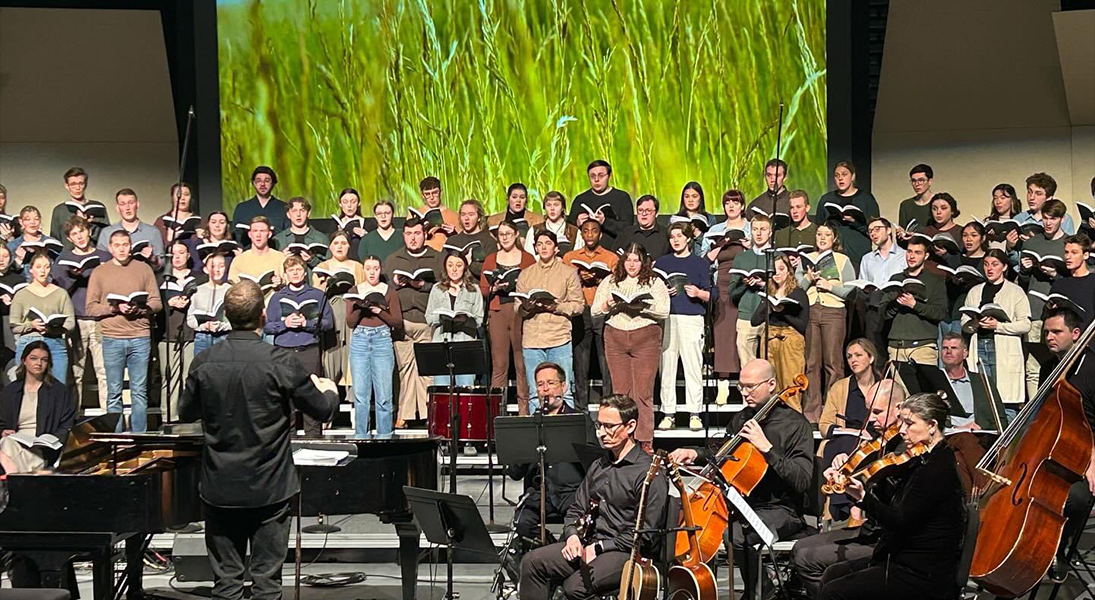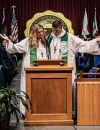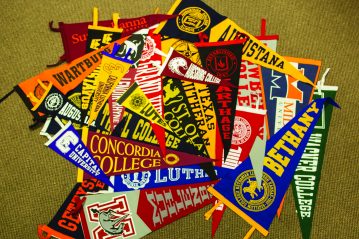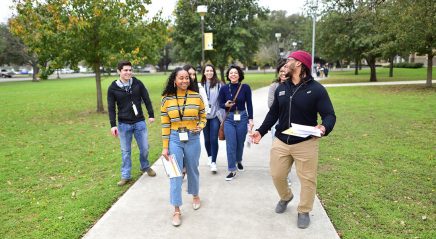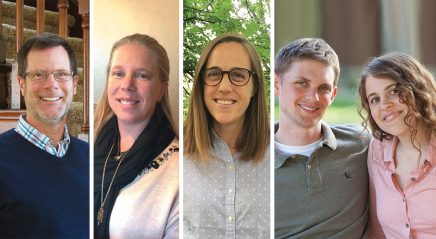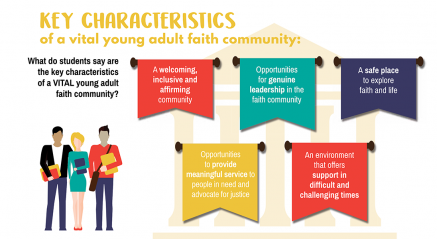Editor’s note: This reflection is part of a series by chaplains in the Network of ELCA Colleges and Universities (NECU) on the ways in which God is at work on NECU campuses.
It was a picture-perfect day: the sun was shining, the temperature was in the low 60s, a slight breeze kept us comfortable, and palm trees invited us to come and play. The Concordia Choir—the most prestigious of three choirs at Concordia College in Moorhead, Minn.—was on a two-week tour of the southwestern United States, and on this sixth day of the tour, choir members had the morning free to visit San Clemente Pier City Beach in Orange County, Calif. It also happened to be Ash Wednesday.
My wife, Kim, and I had been serving as campus pastors at Concordia for just over two years. This was the first time we had accompanied the choir members on tour, offering care, support and compassion on their long and exhausting journey. This year, I began the tour with them, so I was lucky to kick off the 40-day Lenten journey walking in some sand.
The day prior, a student had approached me about administering ashes while we were at the beach. Knowing the different faith backgrounds of choir members, this student leader made a simple invitation to both buses before we unloaded. He told them that, because some of them wanted to observe Ash Wednesday, Pastor Dave would be standing to the side of the buses before we left the beach, and anyone who wanted to receive ashes on their forehead was welcome to come to him—no pressure.
I drew crosses on the foreheads of several college students in an unexpected yet completely normal setting.
With the Pacific Ocean as a backdrop, I drew crosses on the foreheads of several college students in an unexpected yet completely normal setting.
The experience may not have been extraordinary, but it reminded me of how little we campus pastors must do for people to encounter the divine. There was no pipe organ or praise band, no elaborate liturgy or fancy vessel to hold the ashes, no leather-bound book or hand-carved pulpit from which to proclaim a sermon. Instead a plastic condiment cup held the ashes, a dirty parking lot served as the sanctuary and a few words were spoken to each student who came forward, reminding them of their place in the cosmos and of the love that has claimed them, now and forever. —Dave
Profound conversations
There’s a perfect evening that comes to mind for me too—this one in autumn. The leaves were beginning to change, we were comfortable in sweaters and excited to wear them, and the air had that distinct smell of damp leaves, fir needles and fireplace smoke.
We were gathered around the lovely gas firepit on campus for a campfire worship service, and my husband, Dave, and I were saying the words of institution. We invited the students to come forward, emphasizing that Christ is truly the one who invites us and that all are welcome regardless of their faith or nonfaith practices. We began to serve the students while our musicians led us in some simple and reflective singing.
Explaining this paradox opened him up to receive the eucharist for the first time.
A student new to Concordia—and to the United States—approached me and leaned in, asking, “Pastor Kim, is this a human?” His question caught me off guard. I looked at him with wonder and curiosity, and said no. He responded, “But you said, ‘This is the body and blood.’” I turned to Dave, asked him to take over for me, then took this sweet student aside to gently, and quickly, explain this paradox, which opened him up to receive the eucharist for the first time.
After worship, he and I visited so I could more fully answer his questions. What followed was one of the most profound conversations about Holy Communion I’ve ever had, all because he felt safe enough to ask his question and the people around him were willing to let him rest in his curiosity and wonder. He continues to celebrate the eucharist whenever possible, all because of the radical hospitality that campus ministry provides. —Kim
“Does any of this really matter?”
Many people assume that campus ministry involves leading dynamic worship services, teaching engaging Bible studies or carrying out exciting service opportunities. Though this may have been the case earlier in the church’s history, things have shifted—and not necessarily in a negative way.
Today young adults are more willing to ask difficult questions, and campus ministry is a safe place for them to bring these questions. They may not be as active in worship or Bible study, but they are living into what their faith traditions have taught them and showing up in the world in ways that produce change and offer hope.
When I was accompanying one of Concordia’s groups on a Habitat for Humanity trip during fall break, I had a profound conversation with one student about God, faith, organized religion and the mess we’ve made of it.
This student shared with me how they weren’t sure what to make of God anymore, if anything. They shared this because, in their experience, the message that always seemed to be so loud—and so prevalent in their faith tradition—was the idea of individual salvation, without anything else attached to it for the sake of our earthly life.
When the church shows up in places and situations where it seldom has, people notice.
This left the student wondering “if any of it even really mattered.” If all of life is just about whether or not we end up in heaven, does anything really matter?
On Oct. 7, 1998, 21-year-old student Matthew Shepard was killed in a hate crime. His parents went on to establish the Matthew Shepard Foundation, which helped pioneer the United States’ first federal hate crimes legislation and provides hate crimes training to law enforcement officers and prosecutors.
In spring 2024, Kim and I were invited to narrate a performance of Considering Matthew Shepard, a three-part oratorio that fuses a variety of musical styles. The performance involved all the Concordia choirs, plus faculty and staff musicians and guest performers. That same weekend, Concordia’s theater department presented The Laramie Project, about the aftermath of Shepard’s murder.
Being invited into this experience reminded us of something important: yes, the church matters.
When the church shows up in places and situations where it seldom has, people notice. We were invited to be part of something that came about through a tragic event and the collective suffering around it, which have prompted legislation, creative works, training and more. All we had to do was show up, do what was asked of us, “love from the center of who [we] are” (Romans 12:9 MSG) and work together as we “overcome evil with good” (Romans 12:21), standing firm in the belief that, yes, it matters. —Dave



